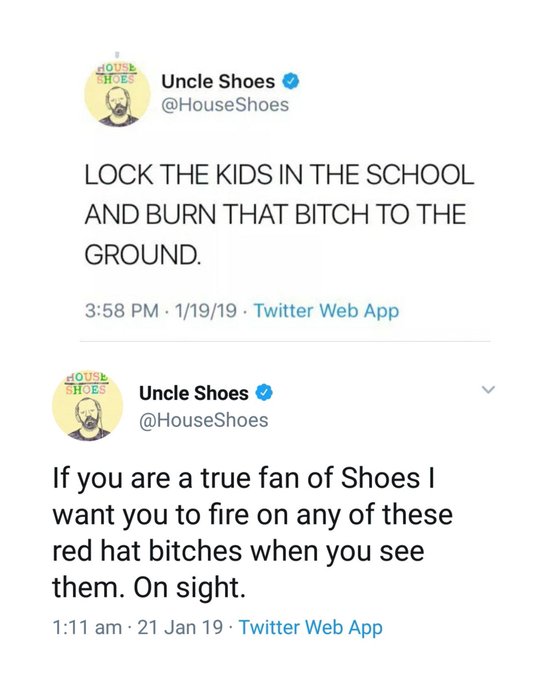TRUMP VS. SOCIAL MEDIA [UPDATED]
Today President Trump signed an executive order intended to address the problem of liberal bias in the major social media platforms. Reporting on the order has generally been poor. This is some of what it actually says, after a long preamble:
Sec. 2. Protections Against Online Censorship. (a) It is the policy of the United States to foster clear ground rules promoting free and open debate on the internet. Prominent among the ground rules governing that debate is the immunity from liability created by section 230(c) of the Communications Decency Act (section 230(c)). 47 U.S.C. 230(c). It is the policy of the United States that the scope of that immunity should be clarified: the immunity should not extend beyond its text and purpose to provide protection for those who purport to provide users a forum for free and open speech, but in reality use their power over a vital means of communication to engage in deceptive or pretextual actions stifling free and open debate by censoring certain viewpoints.
***
Sec. 4. Federal Review of Unfair or Deceptive Acts or Practices. (a) It is the policy of the United States that large online platforms, such as Twitter and Facebook, as the critical means of promoting the free flow of speech and ideas today, should not restrict protected speech. The Supreme Court has noted that social media sites, as the modern public square, “can provide perhaps the most powerful mechanisms available to a private citizen to make his or her voice heard.” Packingham v. North Carolina, 137 S. Ct. 1730, 1737 (2017). Communication through these channels has become important for meaningful participation in American democracy, including to petition elected leaders. These sites are providing an important forum to the public for others to engage in free expression and debate. Cf. PruneYard Shopping Center v. Robins, 447 U.S. 74, 85-89 (1980).
***
c) The FTC shall consider taking action, as appropriate and consistent with applicable law, to prohibit unfair or deceptive acts or practices in or affecting commerce, pursuant to section 45 of title 15, United States Code. Such unfair or deceptive acts or practice may include practices by entities covered by section 230 that restrict speech in ways that do not align with those entities’ public representations about those practices.
The genesis of today’s order is, as I understand it, the tech platforms’ desire to have their cake and eat it too. They want to be classified with internet service providers under federal law, so that they are immune from liability for anything that might be posted on their platforms. ISPs, of course, have no idea what publishers of web sites (like us) are putting up on the internet, and don’t purport to take any responsibility for it. As a result, under federal law they are immune from liability for, e.g., defamation.
The social media platforms want that immunity, and so far they have, I believe, enjoyed it. But at the same time, they, unlike ISPs, constantly monitor and often censor material that is posted by their members. They represent that they suppress certain kinds of undesirable information in the public interest, and to provide a better user experience. Fine: but in that case, they can’t claim the legal immunity that the federal government has conferred on ISPs.
No doubt this is a oversimplification, and more knowledgeable readers can weigh in via comments, but that is my understanding of the legal significance of today’s order. What it will mean, as a practical matter, remains to be seen. The FTC is a bureaucracy like any other, and the likelihood of its taking any significant action before the next presidential election seems slim. So today’s order is perhaps best viewed as a shot across the bow.
A final observation: note this definition.
Sec. 7. Definition. For purposes of this order, the term “online platform” means any website or application that allows users to create and share content or engage in social networking, or any general search engine.
So the order applies, in some fashion, to Google too.
UPDATE: I should add that no one denies that the social media platforms are all run by liberals, and manifest a more or less grotesque left-wing bias. This could be illustrated in a million ways, but let’s just go with this tweet by Nicholas Sandmann, the 16-year-old boy against whom Twitter hosted countless death threats:
REMINDER: Twitter allows these two Verified accounts to remain on the platform after making Death Threats against me and my classmates.
This not only against their rules, it’s illegal.
But they banned @ALX for nothing.
Why is this ok?
cc: @vijaya @TwitterSupport #FreeALX
925 people are talking about this
Twitter has no answer, of course, except that it is a left-wing organization, as exemplified by its first attempt to “fact check” a tweet by President Trump. The “fact check,” done by a far-out leftist, was wrong. To return to the main point: if Twitter wants to be a far-left platform, it has that right. But if that is the path it has chosen, it can’t expect to be granted the same legal immunity that federal law extends to ISPs that have nothing to do with the content of the web sites that they host.




No comments:
Post a Comment